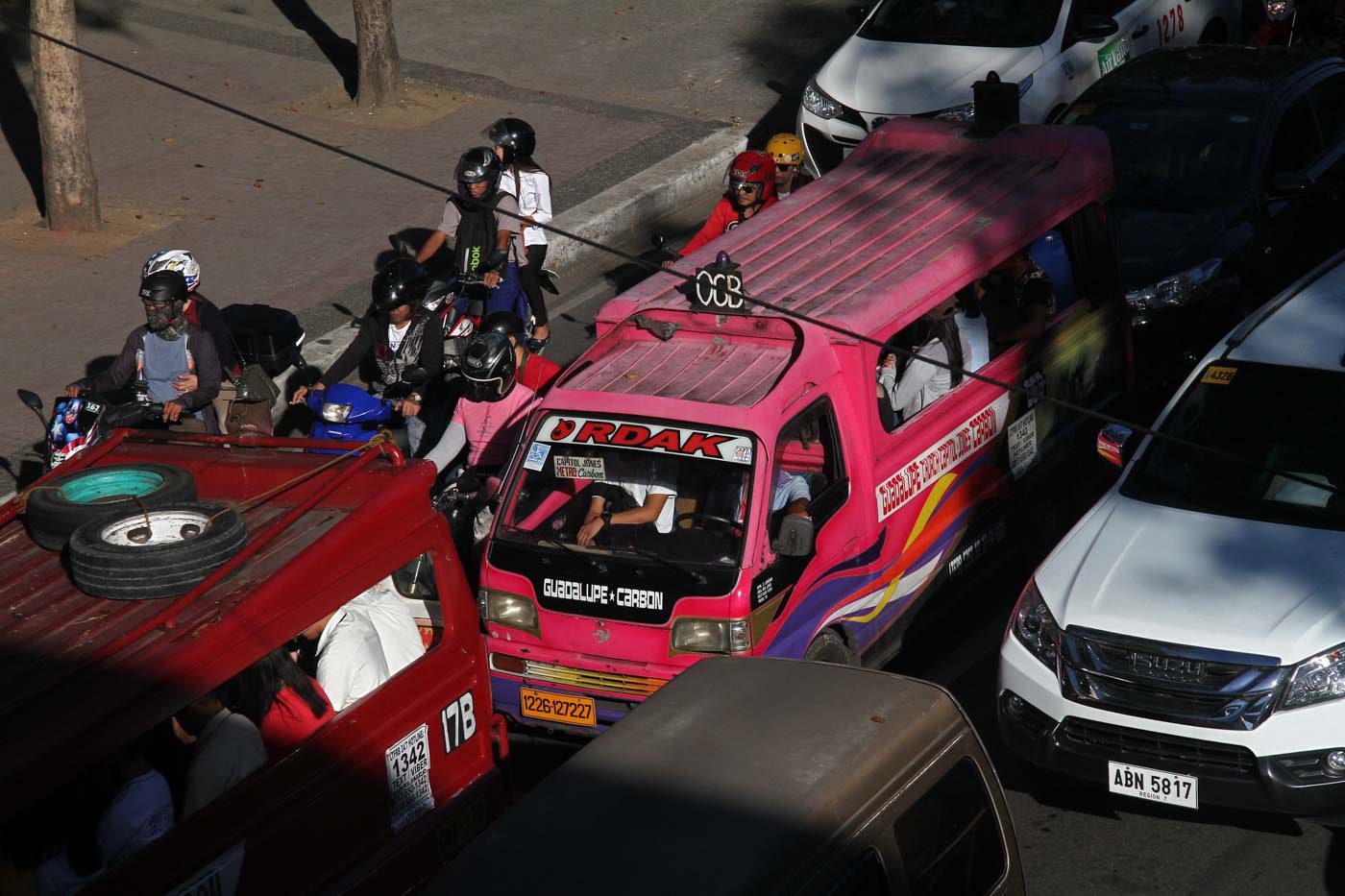SUMMARY
This is AI generated summarization, which may have errors. For context, always refer to the full article.

CEBU CITY, Philippines – A month after the Department of Interior and Local Government (DILG) ordered barangays to – again – clear road obstructions, the Cebu provincial government is saying it has had enough. (READ: DILG reminds LGUs: Memo only for obstruction removal, not road widening)
“Here in Cebu, we’ve already created the Provincial Traffic Management Board which would substantially comply with one of your indicators,” Governor Gwendolyn Garcia told DILG Cebu Provincial Director Jhoaden Lucero.
“We would be the ones to face the policies governing traffic and the movement of all vehicles on all national roads,” Garcia said in a mix of Cebuano and English.
Cebu 3rd District Representative Pablo John Garcia, echoed these concerns in a privilege speech in the Congress on Tuesday, March 10.
“On the surface, the task seems straightforward enough. The regulation of public roads, after all, is within the express powers of LGUs, and the clearing of roads and banning of tricycles and pedicabs would fall under this general power of the LGU,” the representative said.
“We all share in the objective sought to be achieved: Who doesn’t want roads cleared of obstructions; who doesn’t want safer, smoother trips along national highways?”
He complained, however, on the matter that the order was made.
“Not only are local government units being compelled to exercise their power to regulate public roads, the DILG is dictating these LGUs on how to exercise this power, complete with the specific provisions to include in the ordinances to be passed by supposedly autonomous sanggunians,” he said. “Even, if I may add, specific features of a tricycle or pedicab that may be allowed to ply national highways under specific conditions.”
The governor questioned how the LGUs were ordered to implement the road clearing in their memorandum circular.
“Is this a collaborative partnership or is this a dictatorship? Because I cannot find logic we are here to help you but you have to follow that memorandum circular or else,” the governor said.
“I think it’s about time we define what our roles are. Stop treating our elected officials like soldiers because they are not. They are chief executives chosen by the people,” she added.
This is not the first time the Cebu governor complained about road clearing orders and the rating system that followed.
In November, DILG undersecretary RJ Echeverri threatened to sue Garcia after she complained about the low ratings of several municipalities in Cebu after the road clearing assessment was conducted. (READ: DILG threatens Gwen Garcia: We can sue you)
Mayors are given up to April 30, or up to 75 days from the February 16 memo, to comply with the road clearing orders and the prohibition of tricycles on national highways.
According to Lucero, show cause orders would be issued against local chiefs who fail to comply. – Rappler.com
Add a comment
How does this make you feel?
There are no comments yet. Add your comment to start the conversation.